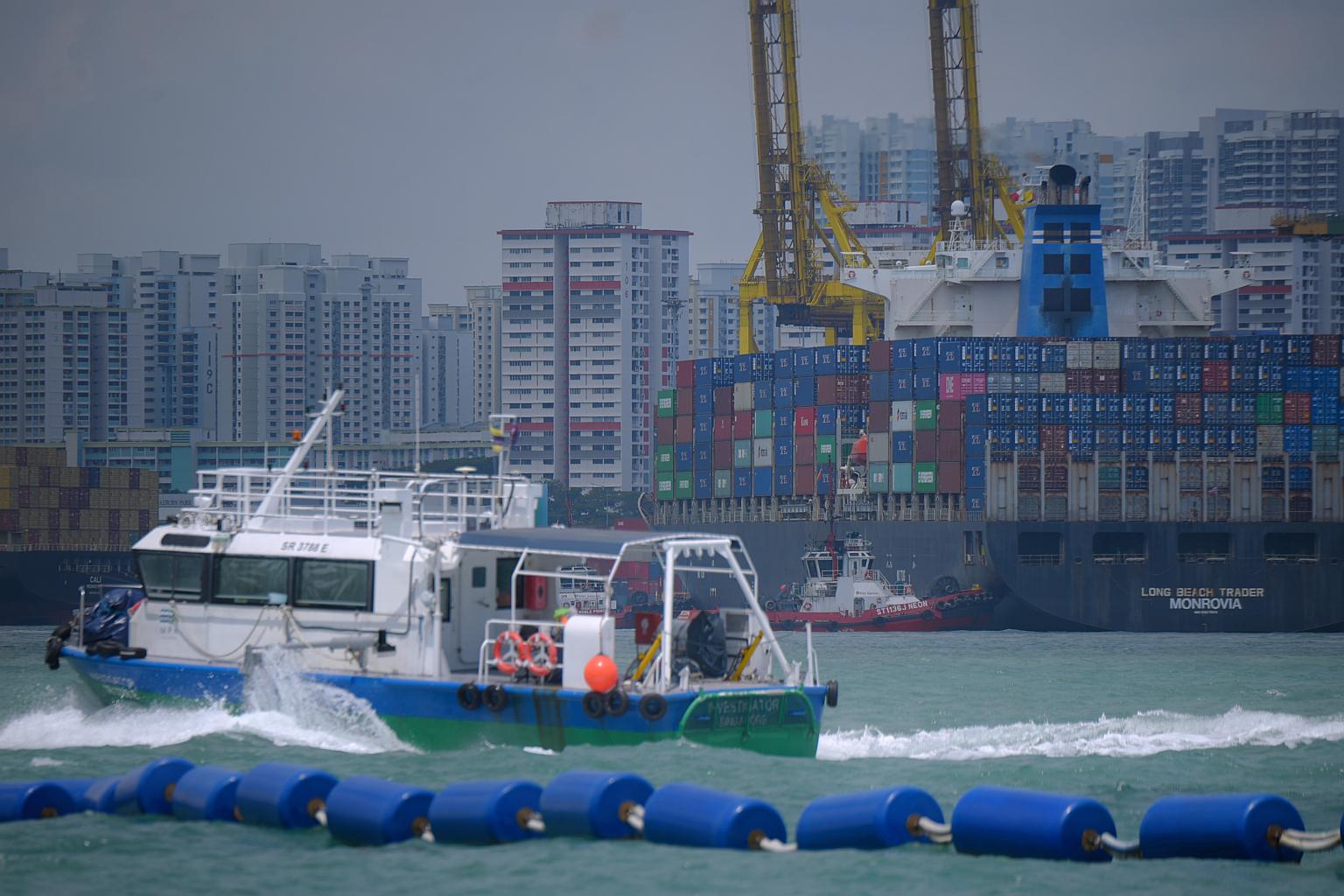Singapore waives port dues on new, green harbour craft, saving operators hundreds of dollars
Sign up now: Get ST's newsletters delivered to your inbox

Port dues for harbour craft are calculated based on their type, their uses and their gross tonnage.
ST PHOTO: MARK CHEONG
Follow topic:
SINGAPORE - For the first time, Singapore will waive port dues for new harbour craft that run on greener fuel.
Transport Minister S. Iswaran on Wednesday (April 6) said the waiver will last for five years from the date of their registration, and apply to both low- and zero-carbon-fuelled harbour craft.
It marks a small but symbolic step that puts Singapore with other standard-setters around the globe in using more market incentives to support greener craft among their local fleet.
The move should save operators hundreds of dollars - more if they are used to ferry passengers.
Port dues for harbour craft are calculated based on their type (whether the vessels are mechanically run), their uses (for goods, passengers or others such as engineering) and their gross tonnage.
Singapore now has 1,600 harbour craft. It wants them to run entirely on net-zero fuels or electricity by 2050.
Many harbour craft are smaller vessels used to deliver goods from shore to ship or between larger ships, and operate mostly in Singapore's waters or anchorage, the area where larger vessels are parked offshore to conduct business.
The first electric vessels are likely to be trialled next year, and companies have said that they want a 50 per cent reduction in harbour craft carbon emissions by 2030.
Speaking at the International Maritime Organisation-Singapore Future of Shipping Conference during the Singapore Maritime Week, Mr Iswaran also said that the Maritime and Port Authority of Singapore will give more port concessions to larger green ships, through rebates on registration fees, annual tonnage tax and other port dues concessions.
Currently, only those running on liquefied natural gas (LNG) - seen as the most viable lower-emission fuel right now - are given concessions on port dues.
The latest move will extend it to vessels running on other upcoming low- and net-zero fuels, including ammonia and hydrogen, as well as ships that have found ways to be more energy efficient and be designated "green".
"As a global hub port and international maritime centre, Singapore is resolutely committed to do our part," Mr Iswaran said. "We will continue to offer technical guidance and support to industry partners and ship owners to adopt green fuels and technologies."
Cleaner fuels will be more expensive in their initial years, and observers and those in the industry have said that market incentives are needed to get operators to make the transition.
Beyond port concessions, some have called for a conventional fuel tax, although many in the ship industry have said that this will push shipping fees - already four times that of pre-pandemic levels - up higher.
Mr Iswaran said Singapore supports a global carbon levy on international shipping, which he said will provide international shipping with "clear price signals".
He emphasised that it must be a "unified, global scheme" to remove the regulatory costs and complexity of unilateral regulations imposed by countries or regions.
Singapore has increased its efforts to make its ports a hub for green shipping these few years. It has kept abreast of refuelling trends for lower-carbon fuels like LNG, conducting 24 ship-to-ship LNG refuelling operations last year, the first year that it offered the LNG bunkering service.
By next year, it will be able to perform 200 of such operations annually, with a second LNG refuelling tanker being delivered by the end of this year.
Singapore is also in various joint industry projects to trial ammonia-fuelled vessels in the coming years. About 16,000 metric tonnes of biofuel blends, made from waste materials, have been supplied in Singapore to 10 vessels so far in trials.

